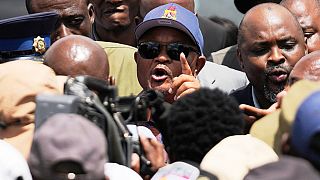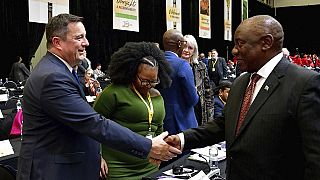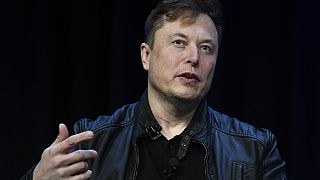South Africa
Cyril Ramaphosa was sworn in for a second full term as South Africa’s president in a ceremony in the administrative capital, Pretoria, on Wednesday.
His inauguration as head of a multi-party government, comes just three weeks after elections in which his African National Congress (ANC) failed to secure a majority for the first time since the end of apartheid.
The party subsequently made a deal with its long-time rival, the opposition Democratic Alliance, and other parties to form a coalition government.
"The voters of South Africa did not give any single party the full mandate to govern our country alone,” he said during the inauguration.
“They have directed us to work together to address their plight and realise their aspirations. They have also been unequivocal in expressing their disappointment and disapproval of our performance in some of the areas in which we have failed them."
Addressing the nation, Ramaphosa said the country had begun a “new era” and pledged that his government would work to improve basic living conditions for all citizens.
He said people wanted to have enough food, decent homes, clean water, affordable and uninterrupted electricity supply, good care for the sick and elderly, quality schools, and other basic services.
While Ramaphosa's words were meant to reassure an already economically strained population, the new administration could prove difficult to lead.
It is made up of parties that are ideologically opposed and do not see eye to eye on how to address the country’s many challenges.
Affirming his commitment to work with all parties represented in the government of national unity, Ramaphosa warned that unless it addressed deep inequalities, the country could become unstable.
“We must reject every attempt to divide or distract us, to sow doubt or cynicism, or to turn us against one another. Those who seek to stand in our way, those who seek to inflame tensions, will not succeed," he said.
Ramaphosa’s next task is to appoint a cabinet. This will likely involve complex negotiations with the various parties making up the coalition.
The current ministers ceased to be ministers the moment the Ramaphosa took his oath, but in the interim, government departments will continue functioning under the leadership of their directors general.
Under South African law, there is no deadline for him to name his cabinet.












02:55
In Cameroon, Paul Biya's candidacy divides his party
01:49
Broken windows and lootings: Nairobi businesses deal with protest aftermath
02:21
Ivorian diaspora in Paris demands free and inclusive elections ahead of October vote
01:09
Cameroon’s civil society calls on voters to sanction Biya in upcoming elections
00:53
Former French president Sarkozy stripped of Legion of Honour medal
02:24
Celebration and protests: Nigeria marks 26 years of uninterrupted democracy